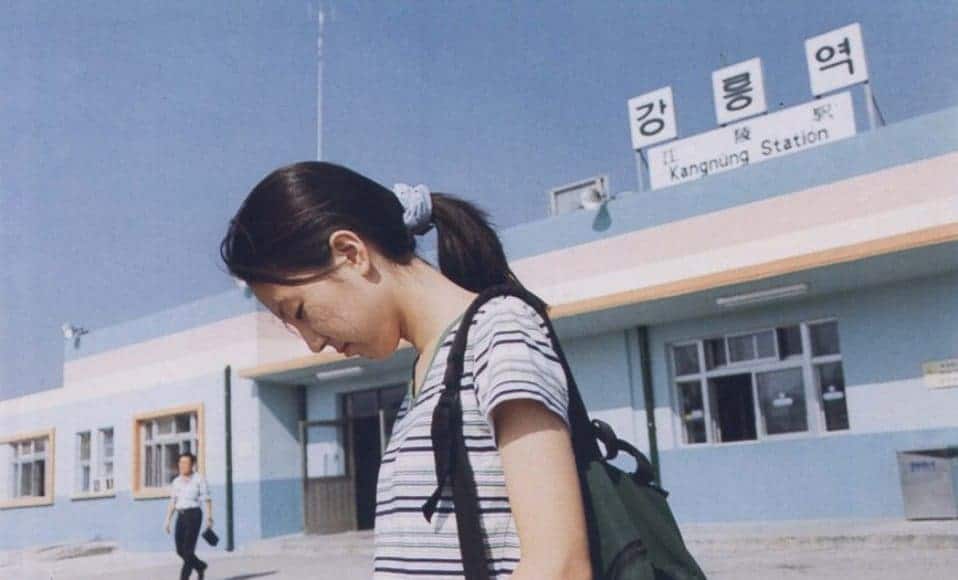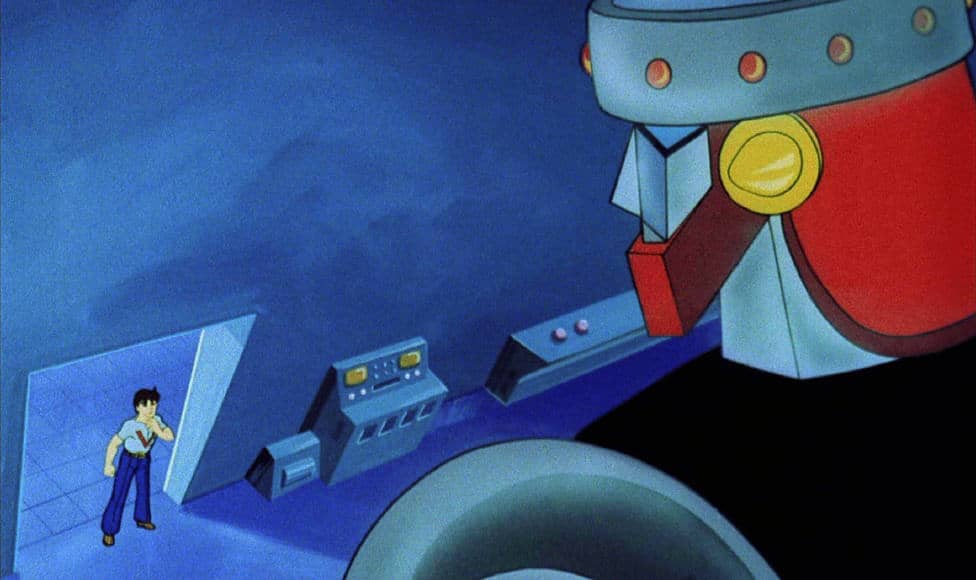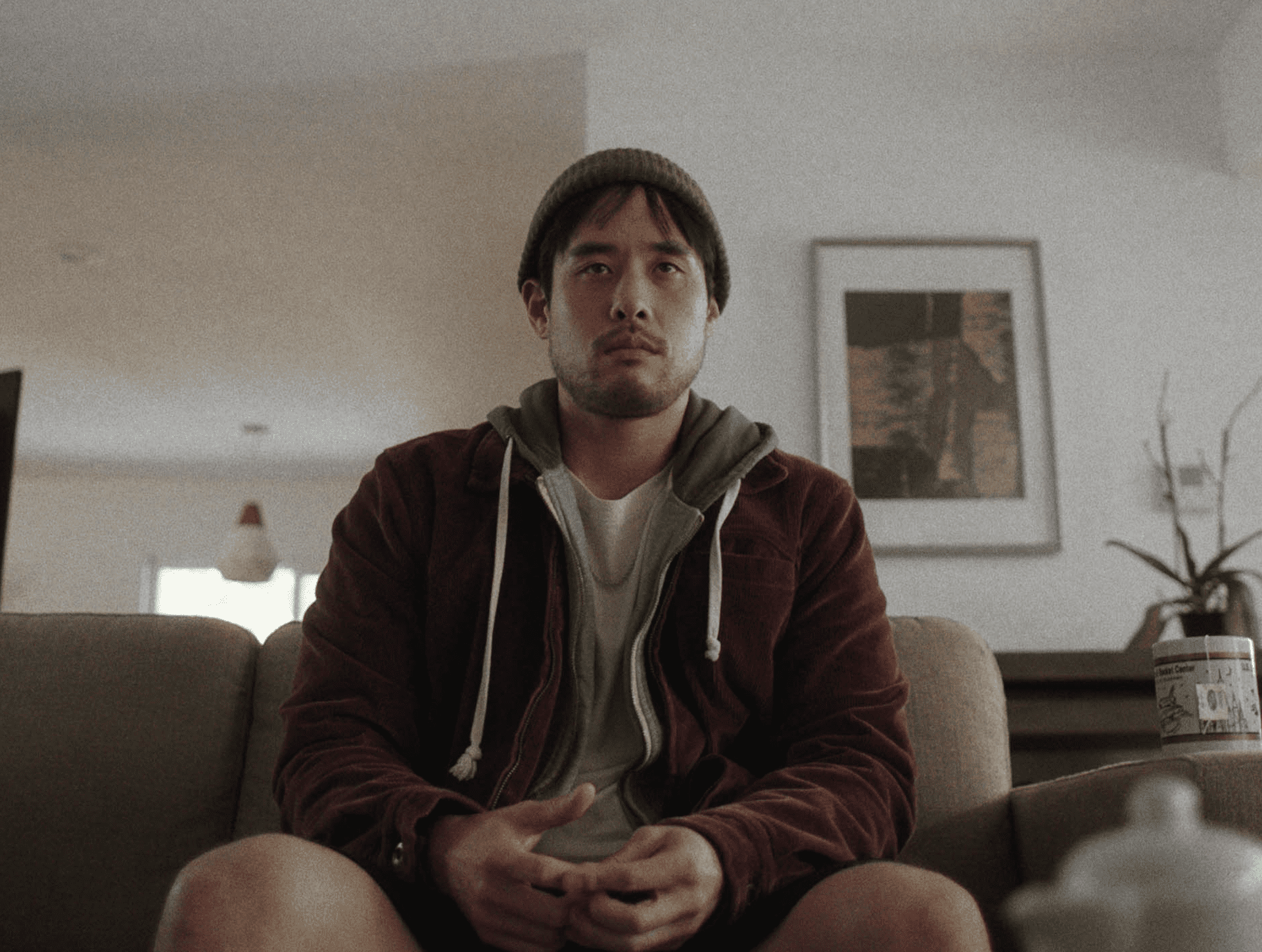Twenty years after its original release, Sang-soo Hong's second film “The Power of Kangwon Province” is a film that serves very much as a blueprint for his next two decades of filmmaking, featuring what would become his cinematic staples, but still has a nineties charm differentiating it from his more recent works.
The Power of Kangwon Province is screening at London Korean Film Festival

Naturally with a Hong film, the structure is unconventional. Here, two intertwining stories are played out, one after the other, with brief hints at a connection between the two leads. To start, three female students are drawn to the North/South border region: Ji-sook (Oh Yun-hong ) arrives after her two friends, and is somewhat distant throughout their trip. After a journey to the mountain, the trio meet a young policeman (Kim Yoo-suk) and the quartet go for drinks…many drinks.
On returning to Seoul, Ji-sook reveals she is going to return to see their policeman friend again, much to her friend's consternation. But the second trip is not so special. Ji-sook is upset at his lateness to meet her – and lets him know it – before drunken conversations over food result in a bedroom session that is far from romantic. Breakfast is served with a side of awkwardness, before Ji-sook tearfully makes her bus journey home.

Here the scene changes to Sang-kwon (Baek Jong-hak), a Hong-staple university lecturer, in discussions with a friend, Jae-wan (Chun Jae-hyun). While married with a child, Sang-kwon is lovelorn for a former student, as well as uncertainties over his career. Jae-wan suggests a trip to Kangwon to relive the old times and Sang-kwon jumps at the chance, but again the trip is far from happy. The pair, far from bachelors, spend their time wandering without purpose or much interest in the sights, before a chance meeting with another tourist prompts an angry exchange.
After a failed night with a pair of prostitutes, the pair sit by the airport on a waiting list for a flight. Eventually returning home, Sang-kwon starts a new job with a university, though he seems far from content with his lot.
“The Power of Kangwon Province” is very much a Hong Sang-soo film – many of his traits are present: drunken conversations leading to arguments between friends; the fish-out-of-water scenario; amorous liaisons; a university lecturer/director neglecting his family/career in search of intercourse with a younger female; and general disappointments all round.

The holidays away from the city only bring further suffering to the two leads: the two males do little with any sense of purpose; while the three females fall out on the holiday and appear distant when returning home.
Hong's films typically have a gimmick or quirk, and here that comes in the form of two stories seemingly unconnected, but brief moments hint at connection; the trips occurring simultaneously. The two leads in each story are clearly troubled by something, though this is not made explicit as to what it might be.

The plot points are subtle, as ever with Hong's films, and little is easily understood, especially for the characters, with only the director fully sure as to what is at work. But, as ever, there is a story of a failed love affair. Both Sang-kwon and Ji-sook suffer sexual failures, seemingly trying to escape something else – a lesson when playing away.
As with some of his other earlier films, sex is more explicitly shown, rather than implied in his later films. Indeed, humour is perhaps better developed in his later career. The connecting “sex” scene at the end features a line that would reappear in Hong's “Women is the Future of Man” – perhaps having a little laugh to himself at the nature of love affairs.
Yeong-cheol Kim's cinematography is a highlight, giving a true nineties East Asian feel throughout – one able to recall the works of Wong Kar-wai and Hou Hsiao-hsie . Shots give the feel of a road movie; less urban and industrialised as many films from South Korea. The still camerawork keeps an eavesdropping distance on the conversations, as if we are sat at the next table, swigging soju; now regular in his films.
While many of his movies follow similar lines, seemingly repeating scenes, “The Power of Kangwon Province” is one of Hong's original and best works, with enough nineties charm to keep it as a distinct film in the memory.















